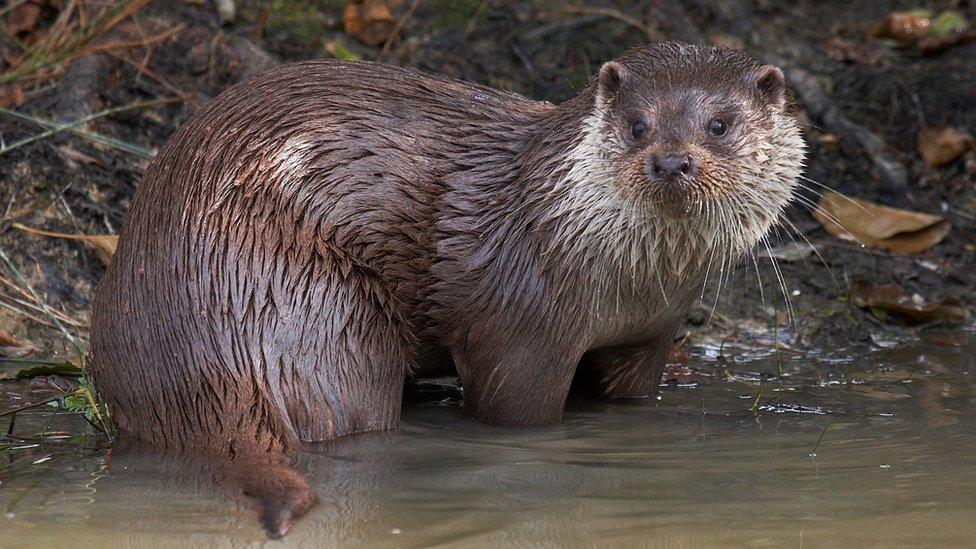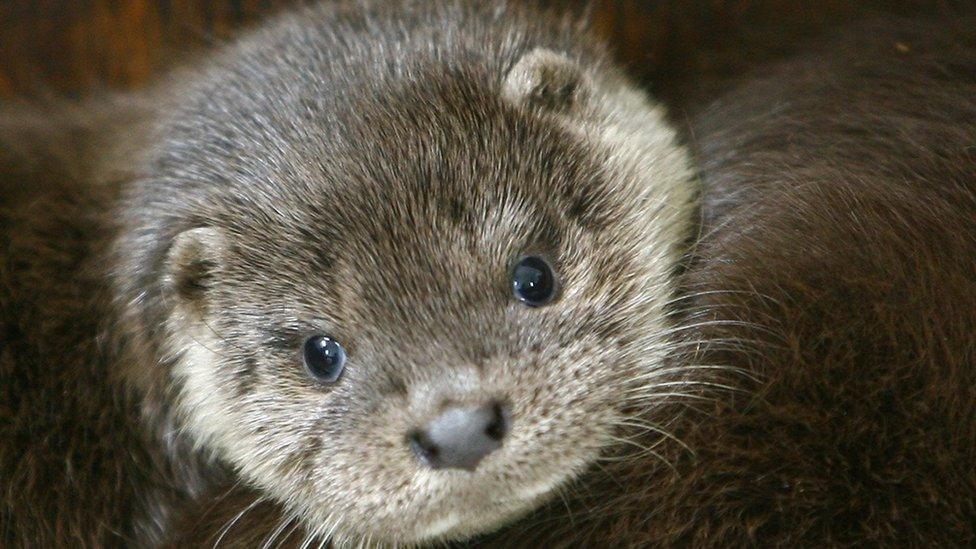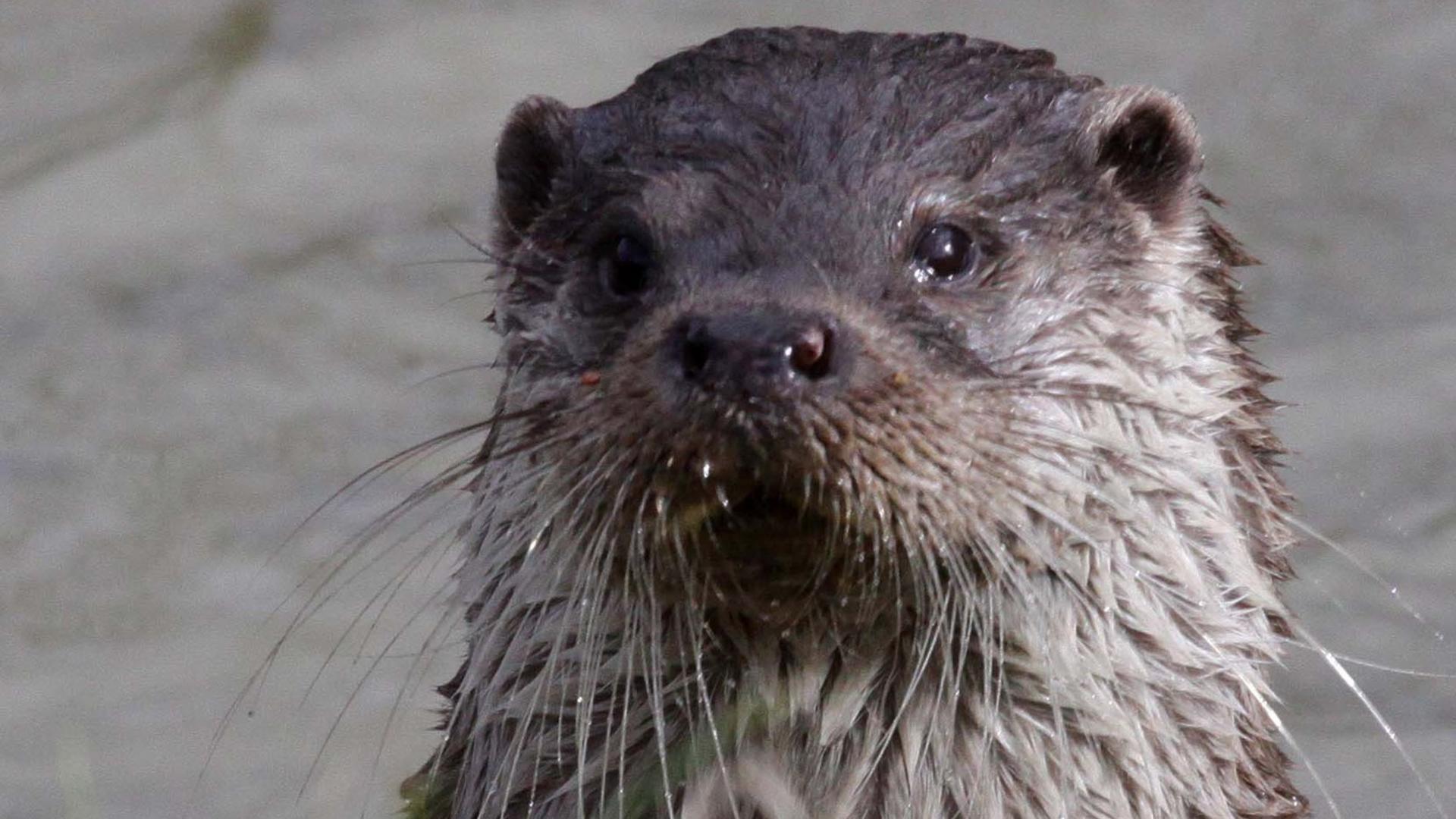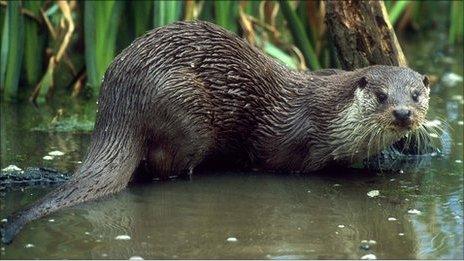Nottingham otter road death 'a good sign' say wildlife experts
- Published

The discovery of a dead otter on a Nottingham road may not be all bad news
A wildlife charity is taking a positive view of the death of an otter as it provides a vital clue in the life of the elusive mammal.
Nottinghamshire Wildlife Trust recently received a report of a dead otter on a road in Gedling, Nottingham.
It said that while it was an upsetting discovery it proved for the first time that otters have been in the city.
While otters are known to live downstream on the Trent, this is the first proof they are further upstream.
Erin McDaid, from the trust, said: "Whilst a sad report, the fact remains this is the first confirmed report we've received of otters in this immediate area.
"We have received reports of otters further downstream and closer to the Trent at Gunthorpe - but only anecdotal evidence of otters in this area so, all in all, this is an interesting record."
Otters only returned to the county in the late 1990s, and road deaths have often provided the best evidence they remain in Nottinghamshire.
Mr McDaid added: "I have only seen otters in a remote area of Scotland, so to think we have them living here in Nottinghamshire, so close to the city is amazing.
"It's sad when creatures such as otters are killed on our roads, but they fact that they have returned to our rivers and streams is a real conservation success story."

Otters

The European Otter grows to up to 1.3m in length and can weigh as much as 9kg
Their main diet is fish but they will take birds, small mammals and frogs if fish is hard to come by
In the 1970s pesticides forced otters to the point of extinction but, thanks to conservation work, in 2011 it was revealed they had returned to every English county
- Published23 August 2014

- Published18 August 2011
